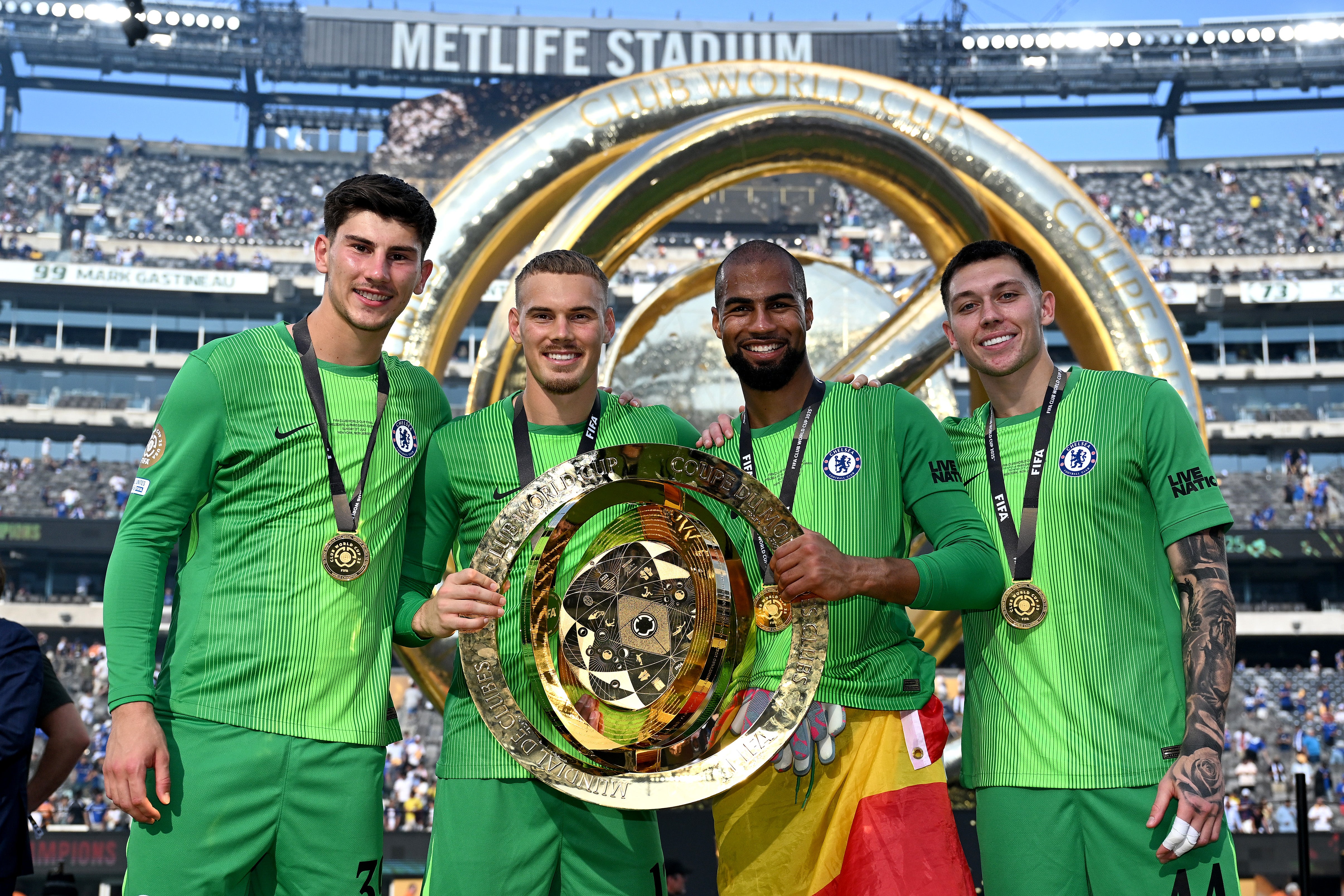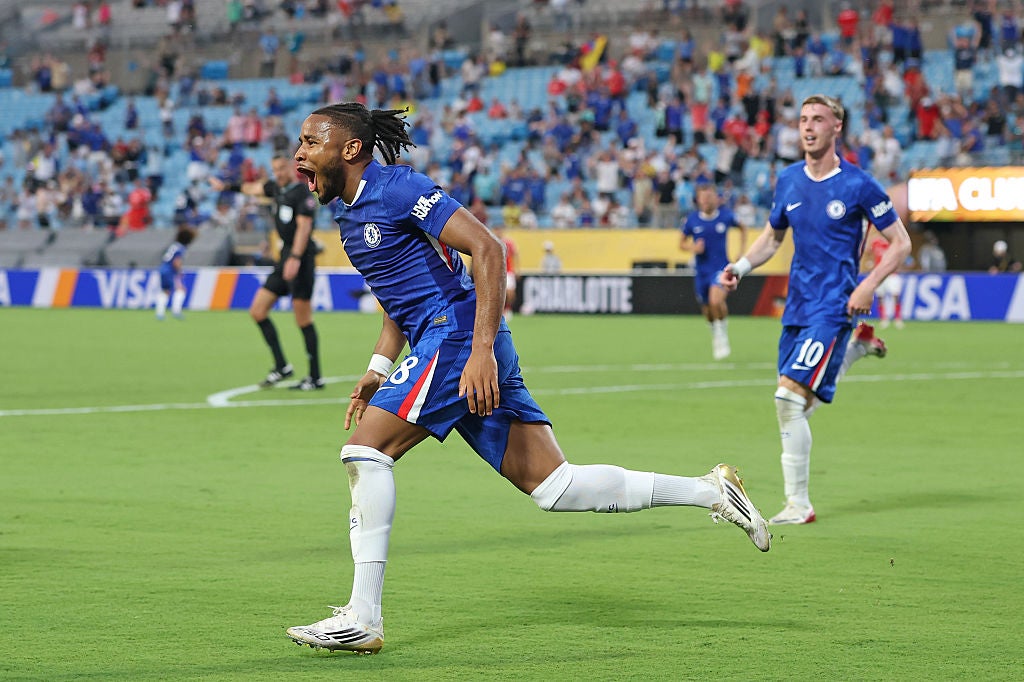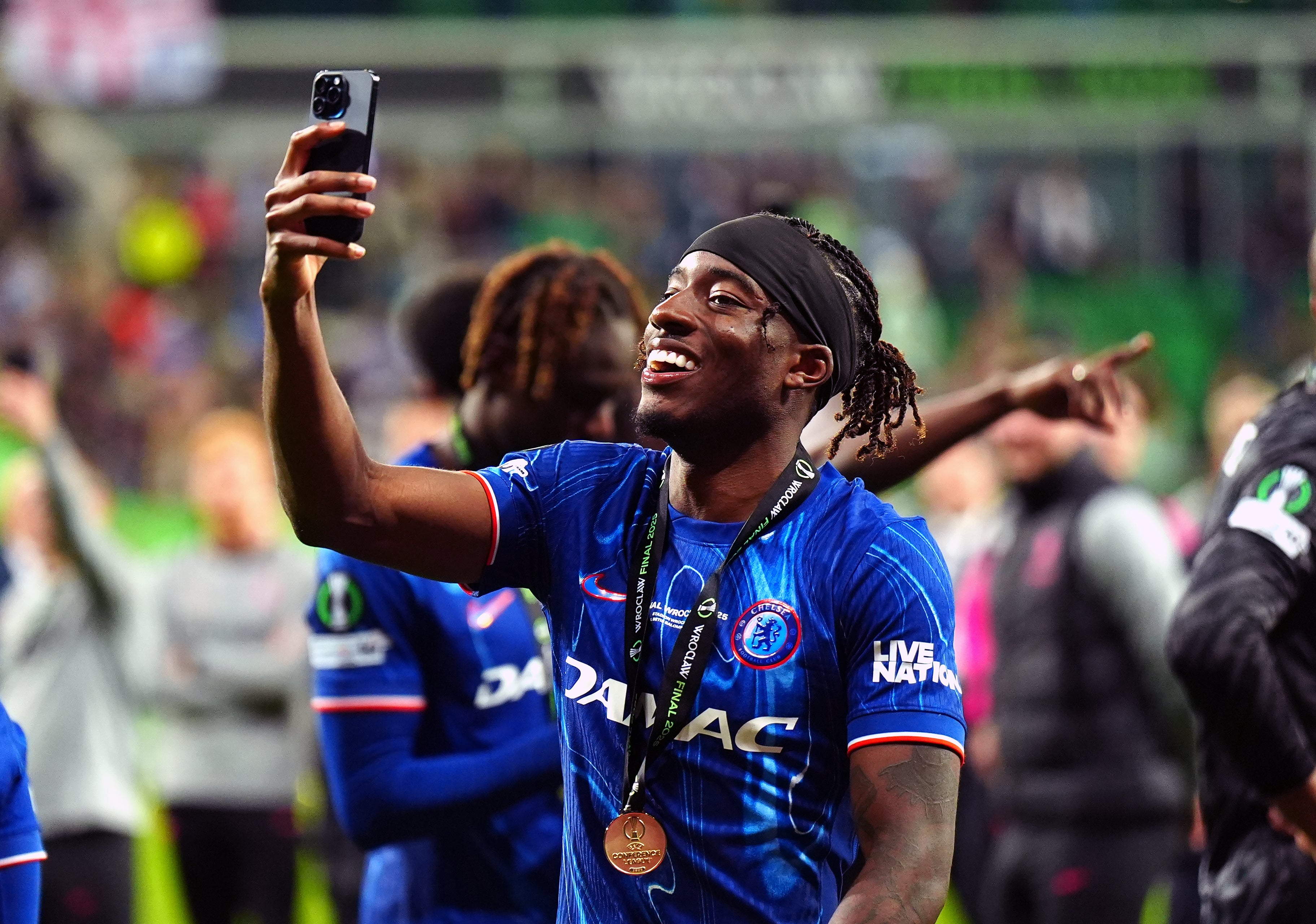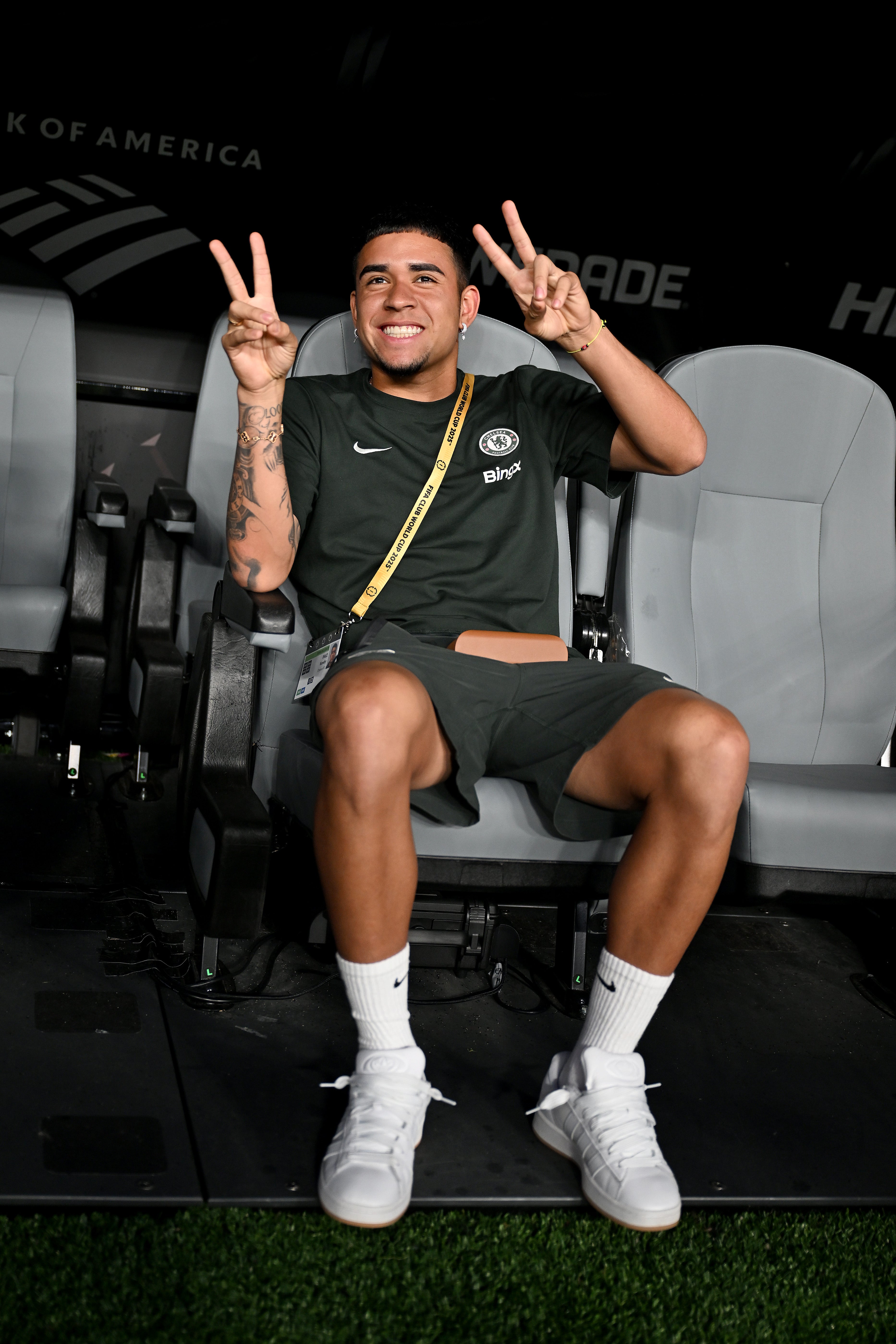It could be deemed the most successful transfer policy in the global game. Cole Palmer, the flagship coup of Chelsea’s recruitment in the new era, scored twice in the Club World Cup final and was named player of the tournament.
The other goal in the demolition of Paris Saint-Germain went to Joao Pedro: 11 days into his Chelsea career, the Brazilian had already scored twice in the semi-final. The Golden Glove was awarded to the much-maligned Robert Sanchez, the unlikely scourge of PSG’s feared forward line. Of 15 players used in the final, three were academy graduates and the other 12 all bought under the new regime.
Now Chelsea have a rare lull in the football, they can get back to their actual business: transfer business. After proof of the mastery of Todd Boehly and Clearlake Capital, they have another chance to demonstrate it. Or, putting sarcasm aside, after the evidence that Chelsea’s outlay on players – now around £1.4bn under their current owners – has brought some quality and some return on the pitch, the Club World Cup winners have more trading to do.
This time, the revolving door needs more departures than arrivals. Part of it is a rather basic but still accurate element: Chelsea have far too many players. Another ought to be obvious: the savings Chelsea claim they make with lower basic wages is offset by the size of the squad and it is a waste of money to pay players not to play.
Yet there is now another imperative. Chelsea were fined €20m by Uefa for breaching squad cost control, which could rise by up to another €60m. Unless they demonstrate they have generated a cost-saving through sales, they could be unable to register new signings for the Champions League. Some of those new faces debuted for Chelsea in the United States, in Joao Pedro, Liam Delap and Dario Essugo. Others played for other clubs there but are now Blues, in Jamie Gittens and Estevao Willian. Then there is Mamadou Sarr and Kendry Paez, while Geovany Quenda is due to arrive next year.
The good news, from a Chelsea perspective, is that they have so many players that there are a host of possible ways to generate money. Indeed, they have already started. They have reduced their stockpile of goalkeepers by selling Djordje Petrovic to Bournemouth, Kepa Arrizabalaga to Arsenal and Marcus Bettinelli to Manchester City. Bashir Humphreys’ loan to Burnley became permanent and, in the accounts, counts as pure profit. Mathis Amougou has gone to sister club Strasbourg; there are suggestions Ishe Samuels-Smith will follow suit.

The bad news, from a Chelsea perspective, is that it would still seem to leave a significant shortfall. Even Noni Madueke’s move to Arsenal, while for a far bigger fee, would leave them with a substantial net spend this window.
Another problem is the probability that the players they most want to sell are among the hardest to offload, particularly for sizeable sums. The Stamford Bridge version of the bomb squad would seem to include Raheem Sterling, Ben Chilwell, Joao Felix and Axel Disasi, none of whom went to the Club World Cup and thus, presumably, have fewer medals from it than Donald Trump. Perhaps Christopher Nkunku, though he did come on in the final, and Armando Broja may be honorary members of it.
There is the further complication that they include several of the bigger earners. The great unsellable could be Sterling, whose loan to Arsenal last season was both subsidised and unsuccessful, thus rendering it less likely anyone will buy him now. Chilwell went to Crystal Palace, but they have just bought a left-back, Borna Sosa, on presumably smaller wages. Disasi could now be approximately an eighth-choice centre-back. Joao Felix was an oddity, bought a year after an underwhelming loan but only to pocket the pure profit from Conor Gallagher’s departure. Perhaps Benfica will prove an escape route, but probably at a loss for Chelsea.

Then there is Nkunku; available for a while, offered to various other clubs, a player of pedigree, but whose route into Enzo Maresca’s strongest side is blocked. Chelsea have tried to sell Broja before but have overpriced an injury-prone attacker.
There is a further category: the young players bought by the new regime, but without a clear plan or path to the team. Chelsea could do with cashing in on some. Carney Chukwuemeka could be among the most sellable and Chelsea’s battalion of new midfielders might render him surplus to requirements. So, too, Lesley Ugochukwu. Maybe even Kiernan Dewsbury-Hall, too.
The new influx of strikers makes it still harder to see David Datro Fofana or Deivid Washington, currently on loan at Santos, in the team; indeed, Nicolas Jackson’s descent from first-choice centre-forward means he offers the possibility of proving a money-making sale.

Others can testify to Chelsea’s ruthlessness. Trevoh Chalobah has long looked at risk, as an academy graduate, but ought to have proved his (footballing) value enough to be safe; younger homegrown players such as Tyrique George or Josh Acheampong should nevertheless consider themselves warned.
The sheer volume of footballers means Chelsea have multiple options. Perhaps few would notice if, say, Omari Kellyman or Caleb Wiley or Marc Guiu or Gabriel Slonina went. Renato Veiga at least made more of an impact.
Perhaps the size of the squad explains why Chelsea need so many sporting directors. They could all be busy looking to offload players. Indeed, they have shown creativity in finding homes for the unwanted. But temporary deals could be less suitable if they need to make a profit. And, in any case, they can only loan out six players abroad, apart from club-trained and Under-21 players. Which, as some of their youthful recruits are 21 or 22, becomes more of an issue, especially if some of those loan spots have to be saved for a couple of the senior players who have no buyers.

If part of the rationale behind Chelsea’s remarkable recruitment was that they were creating value, now they need to extract some of it, to turn the hypothetical prices of players on the balance sheet into funds. Call it an exodus or a clearout but there has long been a case that Chelsea had to shed players. Now, in the glow of success, after being anointed by Fifa and punished by Uefa, is the time to do it.
Chelsea transfer news: Alejandro Garnacho, Jorrel Hato, Morgan Rogers, Rodrygo and more
Cole Palmer is England’s cheat code for World Cup success after Chelsea heroics
How Chelsea justified the Club World Cup’s existence by sinking PSG in stunning final
Transfer news live: Liverpool to sign Ekitike, Gyokeres to Arsenal delay explained
Chelsea transfer news: Garnacho, Hato, Rogers, Rodrygo and more







